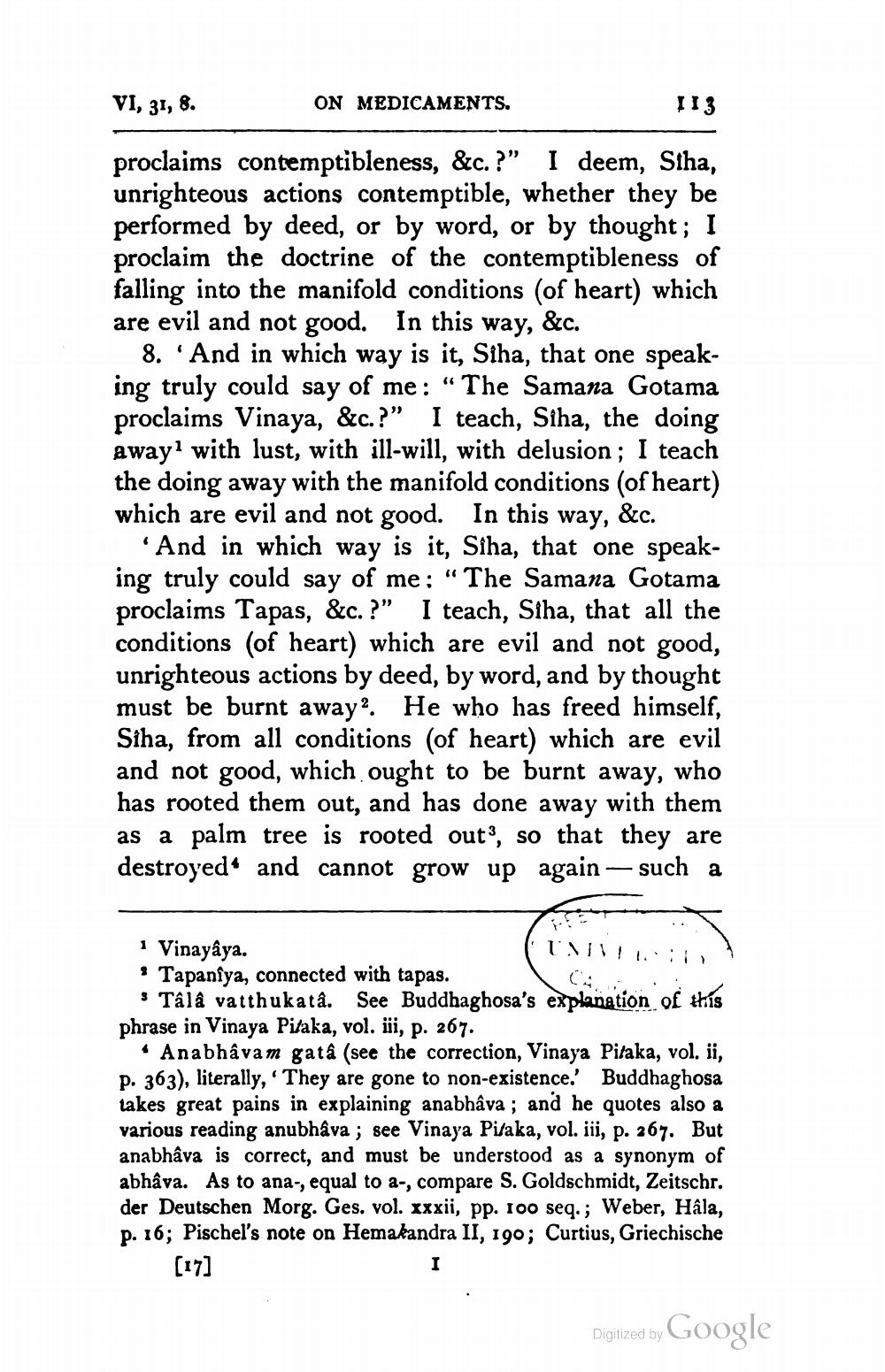________________
VI, 31, 8.
ON MEDICAMENTS.
II 3
proclaims contemptibleness, &c. ?" I deem, Siha, unrighteous actions contemptible, whether they be performed by deed, or by word, or by thought; I proclaim the doctrine of the contemptibleness of falling into the manifold conditions (of heart) which are evil and not good. In this way, &c.
8. 'And in which way is it, Siha, that one speaking truly could say of me: “The Samana Gotama proclaims Vinaya, &c.?" I teach, Siha, the doing away1 with lust, with ill-will, with delusion; I teach the doing away with the manifold conditions (of heart) which are evil and not good. In this way, &c.
And in which way is it, Siha, that one speaking truly could say of me: “The Samana Gotama proclaims Tapas, &c. ?" I teach, Siha, that all the conditions (of heart) which are evil and not good, unrighteous actions by deed, by word, and by thought must be burnt away? He who has freed himself, Siha, from all conditions (of heart) which are evil and not good, which ought to be burnt away, who has rooted them out, and has done away with them as a palm tree is rooted out, so that they are destroyed" and cannot grow up again — such a
1 Vinayâya.
(IVT!. • Tapaniya, connected with tapas.
3 Tâlâ vatthukatå. See Buddhaghosa's explanation of this phrase in Vinaya Pitaka, vol. ii, p. 267.
• Anabhavam gata (see the correction, Vinaya Pitaka, vol. ii, p. 363), literally, 'They are gone to non-existence.' Buddhaghosa lakes great pains in explaining anabhâva ; and he quotes also a various reading anubhava ; see Vinaya Pitaka, vol. iii, p. 267. But anabhäva is correct, and must be understood as a synonym of abhāva. As to ana-, equal to a-, compare S. Goldschmidt, Zeitschr. der Deutschen Morg. Ges. vol. xxxii, pp. 100 seq.; Weber, Hâla, p. 16; Pischel's note on Hemakandra II, 190; Curtius, Griechische
[17]
Digitized by
Digitized by Google




